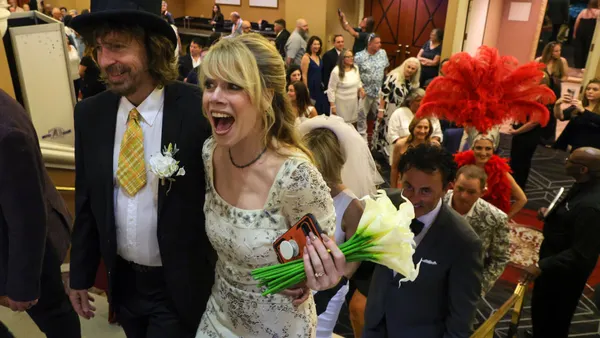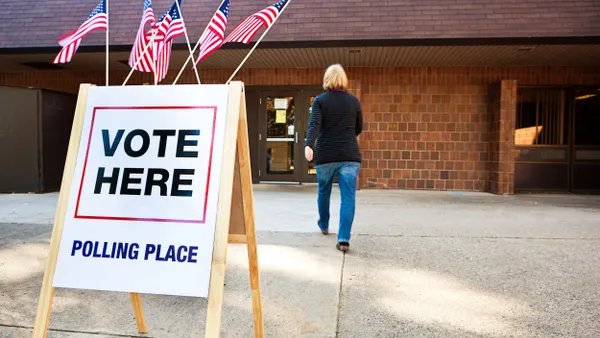Dive Brief:
- The Congressional Smart Cities Caucus will launch next month, co-chaired by Reps. Yvette Clarke, D-NY, and Darrell Issa, R-CA. In a letter to colleagues, Clarke and Issa said the caucus "serves as a bipartisan group of members dedicated to bringing American communities into the 21st century through innovation and technological change."
- The caucus is intended to convene lawmakers with industry stakeholders, state and local government officials and local community leaders to share ideas and best practices, as well as give insights to Congress on new policies. It was announced Thursday at the Smart Regions Congress in Washington, DC, and is expected to formally launch with an event on Capitol Hill in early March.
- "Embracing smart technology will make our communities more sustainable, resilient, efficient, livable and competitive in a world in which technology is constantly advancing," Clarke and Issa wrote in their letter.
Dive Insight:
President Donald Trump’s recently-released infrastructure plan called for investment and improvements in traditional areas including roads, bridges and public transportation, as well as in rural infrastructure that he said has been left behind compared to urban areas.
And while there has been plenty of talk around the United States’ crumbling infrastructure and broad agreement that it needs fixing, the formation of this caucus demonstrates some forward thinking by Clarke, Issa and their colleagues. In separate remarks at the National Press Club, Rep. Brendan Boyle, D-PA, said choosing between investing in traditional infrastructure improvements and more advanced technology is a "false choice," and that Congress needs to "expand the topic of conversation when infrastructure comes up."
"As we prepare for the 21st century … we have to ensure infrastructure is broad enough to include IT systems and is broad enough to include all these technologies making an impact on our cities," Boyle said.
Like anything at the federal level, investing in smart cities and writing new policies around them will not be easy, especially as government is notoriously slow to catch up to new trends. Already at the local level, cities are struggling to regulate the likes of ride-hailing apps like Uber and Lyft and dockless bike-share services.
This bipartisan caucus can possibly move the ball forward at the federal level, and perhaps help push through a bill developing standards for self-driving cars that passed the U.S. Senate but is languishing in the U.S. House of Representatives. "It being a bipartisan issue, especially in these times of polarization, this is something people can get behind,” Clarke aide Christian Gomez told Smart Cities Dive after the announcement.











